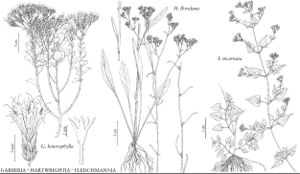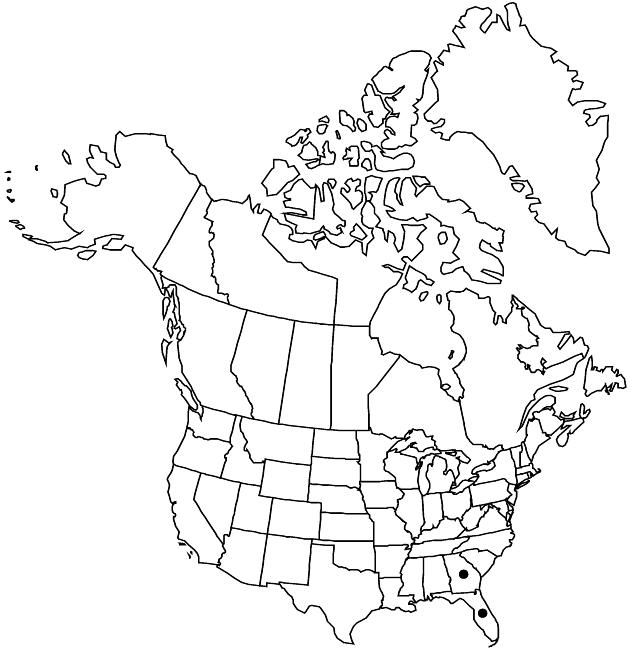Difference between revisions of "Hartwrightia floridana"
Proc. Amer. Acad. Arts 23: 265. 1888.
IllustratedEndemicConservation concern
Treatment appears in FNA Volume 21. Treatment on page 540.
imported>Volume Importer |
imported>Volume Importer |
||
| Line 56: | Line 56: | ||
|publication year=1888 | |publication year=1888 | ||
|special status=Illustrated;Endemic;Conservation concern | |special status=Illustrated;Endemic;Conservation concern | ||
| − | |source xml=https:// | + | |source xml=https://bitbucket.org/aafc-mbb/fna-data-curation/src/2e0870ddd59836b60bcf96646a41e87ea5a5943a/coarse_grained_fna_xml/V19-20-21/V21_1372.xml |
|tribe=Asteraceae tribe Eupatorieae | |tribe=Asteraceae tribe Eupatorieae | ||
|genus=Hartwrightia | |genus=Hartwrightia | ||
Latest revision as of 20:09, 5 November 2020
Leaves: basal blades mostly 5–25 × 1–8 cm, bases tapering to petiolar portions; cauline smaller, linear (bractlike) distally. Corollas ca. 3 mm. Cypselae 3–3.5 mm.
Phenology: Flowering Sep–Nov.
Habitat: Low pastures, prairies, depressions, stream terraces, bogs, marsh edges, seepage slopes, pine flatwoods, usually in sandy peat, peat, or peat muck
Elevation: 0–30 m
Discussion
Of conservation concern.
Selected References
None.
Lower Taxa
None.

